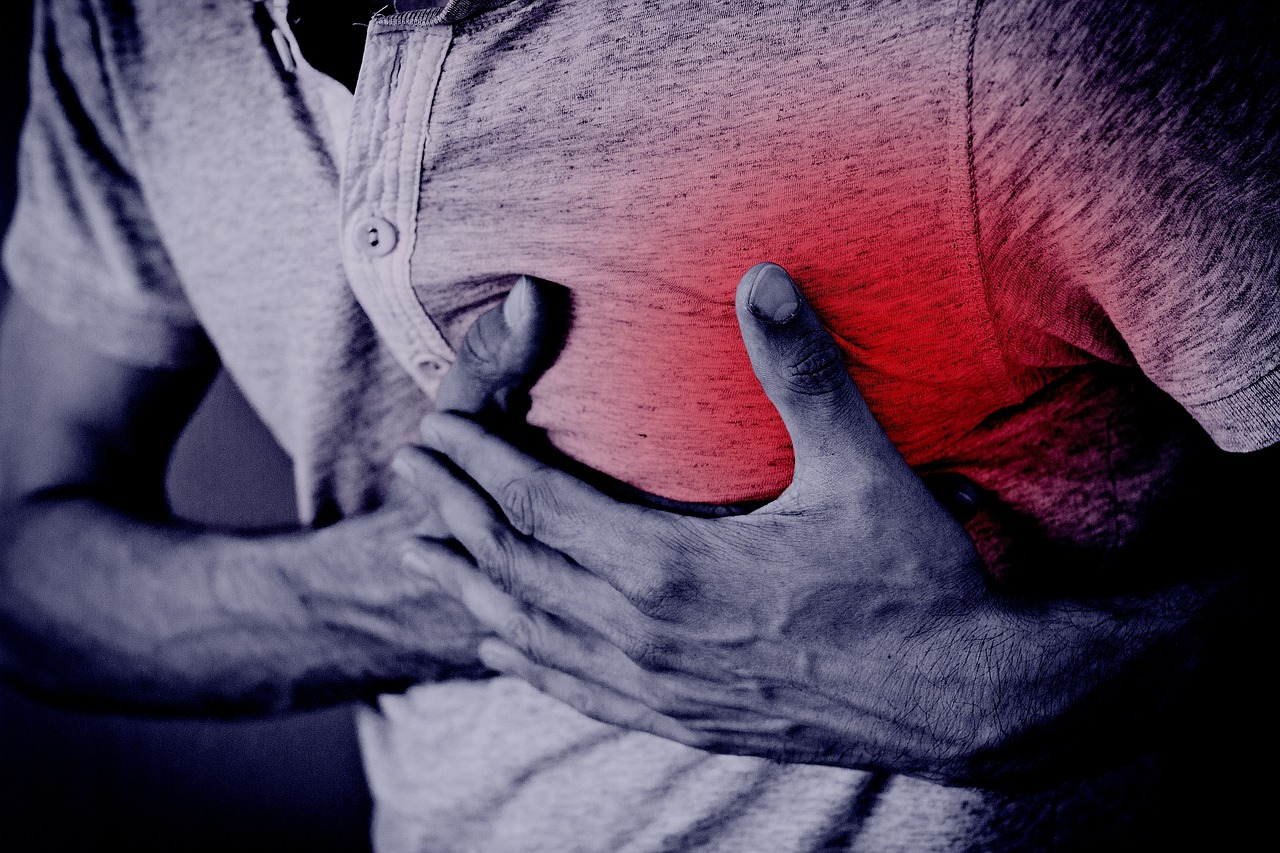Emotional Meltdown: The Silent Crash
The term “emotional meltdown” is not a strictly academic concept, but refers to a sudden downturn in mood that can lead to severe depression and despair, hence the term “meltdown”, which has been invoked to describe a catastrophic drop in the stock market.
It is largely similar to what we often refer to as an “emotional meltdown,” but it is not necessarily accompanied by outwardly intense emotions, such as loud cries or hysterical fits of madness.
Its expression may be more subtle and long-lasting, so it often manifests itself as a “silent” breakdown. In the movie The Joker, after Arthur (the Joker), played by Jaquen Phoenix, loses his job and tries to recognize his family but is ridiculed by the rich Thomas Wayne, the movie presents a visually stunning scene: Arthur goes into the refrigerator in his apartment and chooses to heal himself in this dark, cold and narrow space.
This is not a kind of artistic exaggeration, there was once a netizen who suffered from emotional meltdown, after watching “The Joker”, empathized with this episode, he recalled that his teenage self, after a series of blows, broke down to the point that he could only choose to drill into his own storage room: “that small dark space gave me the only sense of security, I simply can not stay in any open environment for a second.”
Generally speaking, people who experience emotional meltdowns may not usually have depression or other psychosomatic problems, and may even appear cheerful and optimistic to outsiders, but when it strikes suddenly, it can cause an uncontrollable descent into an abyss of despair and panic.
The psychological, physiological and behavioral responses to an emotional meltdown are not consistent for everyone.
The question “What does an emotional meltdown feel like?” was asked on the Q&A community Quora. Ruhulamin Sande, one of the most popular Indian users, wrote: “…… You feel like you’re cursed, your heart always feels heavy, like tons of weight have been put on it. You can’t sleep, even with all your efforts you can only sleep for 2-3 hours, and the rest of the time you just lie in bed in silence …… You don’t feel hungry and you can’t eat well, and it’s hard for you to even recognize if the person in the mirror is yourself. You isolate yourself from the outside world and don’t want anyone to know how you feel.
“You feel like you’re about to drown in grief, and every second you’re closing in on death. The worst part of the emotional meltdown is the panic attack, your heart beats so fast that every ounce of emotion rushes into your head, telling you that nothing makes sense, and no matter how hard you try, the tears won’t stop flowing. You feel like your life is meaningless, your dreams, your goals no longer matter. You just want this pain to stop, no matter what it takes ……”
Chronic stress and unexpected events can make emotional meltdowns come out of nowhere. Lev Tolstoy in Anna . Karenina, Lev Tolstoy said that happy people are similar, and unfortunate people have their own misfortunes. The causes of emotional meltdowns vary from person to person, but in general, they can be categorized into two types: long-term mental stress and sudden life events.
Chronic mental stress is something that every member of modern society is not immune to, especially in areas where the pace of life is faster and social values are measured on a single scale. According to a 2007 World Health Organization report on the survival of the global workforce, 26 percent of the world’s occupations can be classified as high-stress jobs, and 75 percent of them, as many as 2.4 billion of the world’s working population, live in developing countries. For example, in March last year, a “Hangzhou boy was stopped against the traffic, broke down and cried on the spot” news became a hot search, the person concerned needs to be completed at the same time to give his girlfriend to send the keys, as well as within the time limit to avoid being late to the workplace and a series of other tasks, and ultimately, because of the rush to go against the traffic police were stopped. A series of setbacks caused by the “emotional trough” ultimately superimposed on each other, triggering the meltdown.
In addition, various emergencies are also a major culprit of emotional meltdown. According to news reports, after Wuhan was sealed off in mid-January as a result of the Xin Guan epidemic, the local psychological counseling hotline in Wuhan received hundreds of calls for help every day, including quarantined personnel, front-line medical staff and ordinary people, mainly expressing helplessness and despair. One uninfected citizen of Wuhan even suffered from insomnia for six days because of excessive anxiety, while many more people cried, spoke out of turn, and even expressed a desire to commit suicide during telephone counseling sessions. Although the outbreak has been brought under control, psychology researchers are still afraid to relax, because three months after the high incidence of the epidemic, these patients are likely to have another wave of high incidence of traumatic stress disorder.
It is worth noting that in many cases, sudden life events only act as the last straw that breaks the camel’s back. Before that, long-term mental stress may have exhausted our mental toughness, and the forcefully tensed spirit may collapse at any time.
Who is prone to emotional meltdowns?
In the busy, empty world of modern life, everyone is on the verge of an emotional meltdown. While most people can always grit their teeth and get through it, there are some people who tend to have emotional meltdowns, and this group usually shares some commonalities, such as less social support from relationships and a greater tendency to “self-attribute” their problems.
Why is it that in an age of advanced communication networks, we receive less social support? It comes from the stereotype that emotional breakdowns are a personal problem caused by inefficiency and weakness of will, a kind of unspeakable privacy, and that as long as one is not broken, these inner burdens and pains cannot be known by family members, coworkers, or professional psychotherapists.
The so-called “self-attribution”, that is, when you encounter success or failure, tend to attribute it to themselves or external factors. For example, the tendency to give credit to oneself and blame others for one’s mistakes is a typical example of egoistic attribution bias.
People who are prone to emotional meltdowns tend to have a negative attributional tendency. They tend to blame themselves for failures and believe that they possess certain stable and unchangeable negative traits (e.g., they are not smart or pretty), and they have a guilty or even sinful attitude toward failures. They may have grown up experiencing suppression and blame from those around them, thus imprinting a personality trait of low self-esteem and always habitually blaming themselves.
Sudden emotional meltdown.
How do we deal with it?
Although in most cases, emotional meltdown will recover naturally, letting it go can have serious consequences, such as leading to anxiety, depression and post-traumatic stress disorder. In fact, in my opinion, Yu Huan Shui has already experienced an emotional meltdown after that car accident 10 years ago, which is why he became weak and timid.
Here are some ways to help reduce emotional stress and physical discomfort:
It is important to realize that staying away does not make you forget, it just allows your taut spirit to get temporary relief and find a chance to regain emotional resilience, which is the most direct way to dissipate the negative effects it brings.
Seek social support from family and friends, talk to them about your thoughts, concerns and get their emotional support or practical material support.
If there is no way to relax your mind, then relax your body first. The body and mind are not dualistic, but interactive. Deep breathing, massage, exercise, meditation or yoga can help to relax your body and can help to relieve mental stress.
Get a good night’s sleep. Several studies have shown that a good night’s sleep helps alleviate negative emotions, which is a self-protective mechanism of the brain. Therefore, it is even more important to get a good night’s sleep when you are in an emotional meltdown. It may help to create a good atmosphere for sleeping and, if necessary, light incense in your bedroom that will relax your mind.
Finally, if conditions permit, you can also seek counseling from professionally qualified counselors and psychiatrists, who may be able to provide more professional and personalized psychological guidance.



